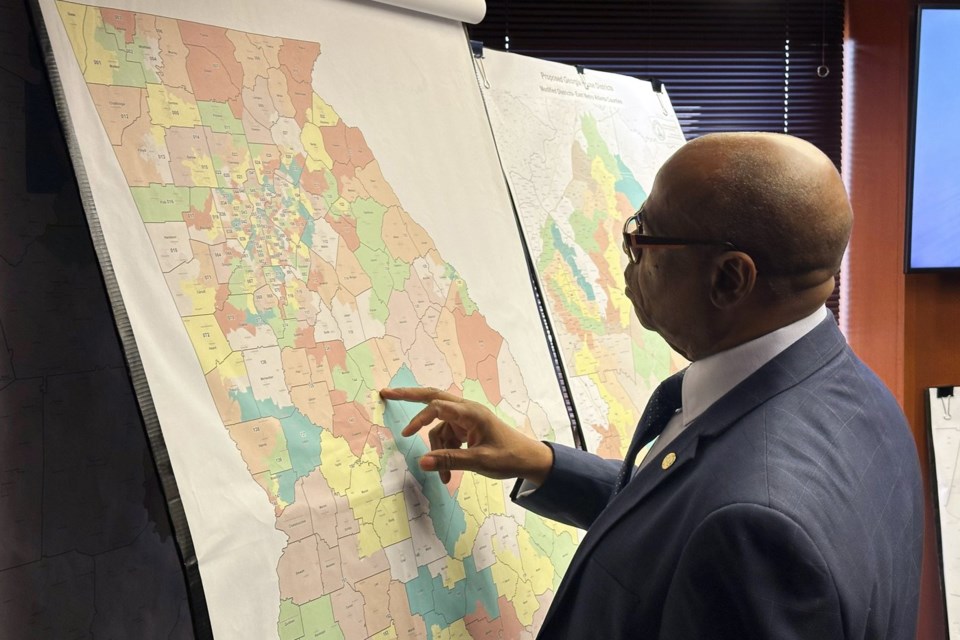ATLANTA (AP) ā Challengers on Thursday told a federal appeals court that Georgia lawmakers are still violating Black votersā rights after redrawing the stateās congressional and legislative maps.
If judges uphold the challenges, they could order different district lines to be used in Georgia for the rest of the decade, making it possible that more districts would elect candidates favored by Black voters ā usually Democrats.
The voting rights groups argued in three cases that lawmakers created additional majority-Black districts, but didn't do enough to address the harms suffered in the areas where they proved at trial that there was illegal vote dilution.
For state Senate and House maps, the area in question is in Atlanta's southern suburbs. For the congressional map, it's in areas north and west of downtown Atlanta. But lawmakers drew in Black voters in other parts of the metro area to make new Black-majority districts.
āGoing to a different part of Atlanta to create opportunities for Black voters is not sufficient,ā said Ari Savitzky, a lawyer for the American Civil Liberties Union representing those challenging state legislative maps.
Lawyers for the state, defending the current maps, say that the state has complied with a and that the challengers can't demand new districts in exact locations. Stephen Petrany, Georgiaās solicitor general, says the challengers are really trying to elect more Democrats, and that the court shouldn't let them use the lawsuits to do that.
āAre these the right number of districts? Yes. Are they in the right area? Yes," Petrany told judges. "That is the end of this case.ā
Judge Adalberto Jordan said any decision on redrawing maps would wait until after a ruling on a separate challenge to U.S. District Judge Steve Jones' original decision by Republican Secretary of State Brad Raffensperger. In that case, argued in January, Raffensperger contends that Jonesā decision should be overturned and the state should revert to the maps that lawmakers drew in 2021 before Jones ruled they were illegal under the . Section 2 of that law protects minority voters.
The challengers have a steep climb. Jones ruled in 2023 after a trial that lines were drawn to illegally dilute Black votes. But he accepted maps drawn by lawmakers in special session as fixing the illegalities. For the three-judge panel of the 11th U.S. Circuit Court of Appeals to overturn the map, the judges must rule that Jones abused his discretion.
Jones that the didnāt do enough Black voters. Jones said he couldnāt interfere with legislative choices, even if Republicans moved to protect their power. But challengers say Jones was too deferential to lawmakers even when he had already found they had acted illegally.
Jordan repeatedly pushed the challengers on how many of the affected voters had to be included in new districts. Lawyers for the challengers said there was no set standard, but that Georgia lawmakers hadnāt done enough.
Abha Khanna, representing challengers in two lawsuits said the new map ālaundered Black voters across districts deftly to create the illusion of new opportunities.ā
While the maps created additional Black-majority districts, they also locked in Republican advantages. In a state where GOP candidates in competitive races win at best 53% or 54% of the vote statewide, Republicans hold 64% of congressional seats, or 9 of 14. They hold 59% of state Senate seats, or 33 of 56. The state House is a little closer to parity, with Republicans holding 100 of 180 seats, or 56%.
If the current maps are not overturned, Georgia is likely to use them through the 2030 state elections.
Jeff Amy, The Associated Press




